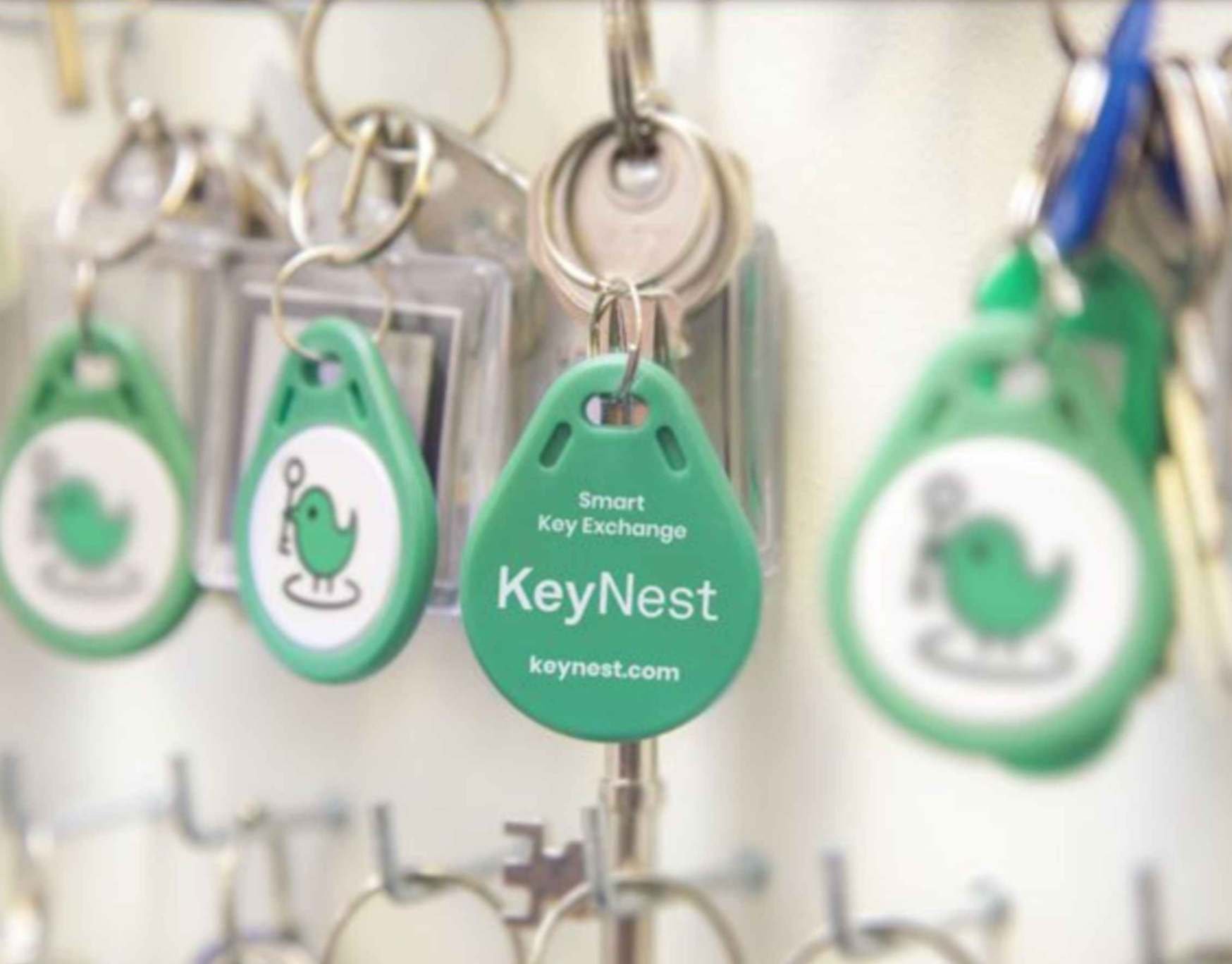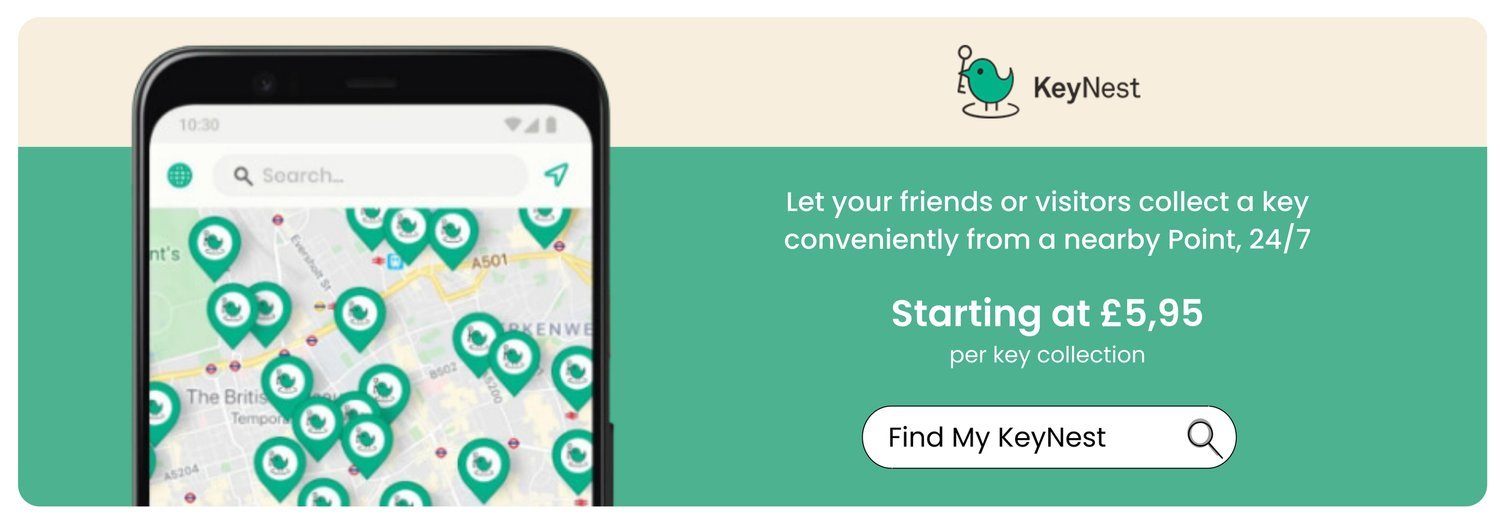Over 1500 key exchange locations nationwide
Cambridge Short-Term Rental Regulations For Airbnb Hosts
As short letting continues to grow in popularity, cities across the world are tightening regulations to manage short-term rentals. Cambridge, a historic and vibrant city known for its academic institutions, is no exception. In 2025, new guidelines have been introduced to ensure that holiday rentals comply with both local laws and the needs of the community. Whether you're a current host or planning to start renting out your property, it's essential to understand these regulations to avoid penalties and ensure a smooth operation.
In this article, we'll walk you through the key changes and what they mean for property hosts in Cambridge this year. From registration requirements to safety standards, here's everything you need to know about managing your short-term rental in compliance with the latest city regulations.
Let's dive into the most important aspects of the 2025 short let regulations in Cambridge.
Registration Requirements Of Short-Term Rentals In Cambridge
In 2025, Cambridge has introduced mandatory registration for all short-term rental properties. To ensure compliance and safety, hosts must submit an online registration form to the local government, detailing their property’s location, capacity, and ownership. Failure to register could result in hefty fines or removal from the approved list of Airbnb hosts in the city.
Why Registration is Important: It allows local authorities to track the number of short-term rentals and monitor their impact on neighborhoods.
Required Information: Hosts must provide their property’s full address, occupancy limits, and proof of ownership or lease agreement.
Consequences of Non-Registration: Unregistered properties may face fines, and their listings could be removed from the platform.
Deadline for Registration: Hosts must complete the registration process within a specified time frame to avoid penalties.
Exemptions: Certain properties, such as those already compliant with alternative regulations, may be exempt.
How to Register: The registration process can be completed online through the official Cambridge city portal.
Short-Term Rental Regulation Registration Requirements
The new regulation requiring Airbnb hosts to register their properties is one of the most significant changes in 2025. This measure helps ensure that short-term rentals are being properly monitored and managed. It also addresses community concerns about the proliferation of unregulated rentals in residential areas.
For hosts, this registration serves as an essential step toward compliance. However, it's crucial to follow through with the registration process to avoid legal complications. Let's look at some of the finer details that every host needs to be aware of.
Health & Safety Standards For Cambridge Short-Term Rental
Health and safety have become central to the 2025 regulations for property host rentals in Cambridge. Property owners are now required to meet specific health and safety standards, including fire safety measures and ensuring that the property is free from hazardous conditions. These regulations aim to protect both guests and hosts from accidents or emergencies during stays.
Introduction to Health and Safety Standards
The health and safety regulations for Airbnb properties in Cambridge aim to protect guests from accidents, ensuring a safe environment during their stay. These measures are not just about protecting visitors but also ensuring the peace of mind of hosts and their neighbors. The standards of safety include a mix of fire safety protocols, structural checks, and emergency planning.
As a host, it’s important to adhere to these safety guidelines to maintain your listing and avoid potential liabilities. In this section, we’ll dive deeper into what you need to do to meet these safety requirements. Let’s explore the specific standards you need to comply with in 2025.
Fire Safety Requirements: Hosts must install smoke detectors and fire extinguishers in all rooms, along with clear evacuation routes.
General Property Safety: Properties should be free of hazards like exposed wiring or unstable furniture.
Guest Safety Obligations: Hosts must provide guests with safety instructions, including emergency contacts and first aid kit locations.
Compliance Inspections: Local authorities may conduct random inspections to ensure properties are meeting safety requirements.
Regular Safety Checks: Hosts should schedule periodic safety checks to ensure ongoing compliance.
Penalties for Non-Compliance: Failure to meet safety requirements can result in penalties or removal from the Airbnb platform.
Tax Implications For Hosts In Cambridge Airbnb
In 2025, property host rentals in Cambridge must adhere to new tax guidelines for short-term rentals. Cambridge has introduced additional tax obligations for hosts, particularly focusing on short-term rental income. Understanding these tax implications is crucial to ensure that you remain compliant with both local and national tax laws.
Introduction To Tax Implications As Part Of Short-Term Rental Rules
As a property host rental in Cambridge, it’s crucial to understand the financial obligations that come with renting out your property. In 2025, tax laws have become more stringent, requiring hosts to report and pay taxes on short-term rental income. This section will explain the new tax rules, how they impact you, and what you can do to ensure compliance. We'll also cover tax deductions that may apply to your property.
Whether you’re renting out a room or an entire property, staying on top of your tax responsibilities is essential. Let’s take a closer look at the key tax implications that every host should be aware of.
Income Reporting: Hosts must report rental income earned from Airbnb to HMRC.
Short-Term Rental Tax Rates: The tax rate applied to short-term rental income may vary depending on the total income.
VAT Registration: Hosts who earn above a certain threshold must register for VAT.
Tax Deductions: Certain expenses related to the rental property may be deductible, including maintenance costs and property management fees.
Record-Keeping: Hosts are required to maintain detailed financial records to comply with tax laws.
Penalties for Non-Compliance: Hosts who fail to report their earnings or pay taxes could face fines or legal action.
City Council Zoning Restrictions & Neighborhood Impact
Zoning regulations in Cambridge have been updated to address the growing number of Airbnb listings. These new rules are designed to prevent short-term rentals from negatively affecting the character of residential neighborhoods and to maintain the quality of life for long-term residents. Hosts must be aware of these zoning laws to avoid potential conflicts with neighbors or city authorities.
Introduction To Zoning Restrictions & Local Regulations
Zoning laws are an important consideration for property host rentals in Cambridge, as they help preserve the integrity of residential neighborhoods. In 2025, these zoning restrictions have been updated to account for the increased number of short-term rentals. Understanding where and when you can rent your property, along with the impact on your neighbors, is vital to avoid conflicts.
Let’s explore what these zoning restrictions mean for your rental and how to stay compliant with local regulations. Knowing where and how to operate your Airbnb property will help you avoid disruptions to your neighbors and potential fines.
Neighborhood Zoning Rules: Certain residential zones may have restrictions on short-term rentals.
Community Impact Assessment: Hosts may need to submit an assessment of how their rental could impact the neighborhood.
Limitation on Rental Duration: There may be limits on how many days per year a property can be rented out short-term.
Neighbor Consent: Some areas may require approval from neighbors or a local council.
Noise and Nuisance Control: Airbnb hosts must adhere to noise ordinances to minimize disruption to the community.
Dispute Resolution: Hosts should have a plan in place for handling complaints from neighbors or local authorities.
Penalties For Non-Compliance With Airbnb Accommodation Regulations
Hosts who fail to comply with Cambridge’s 2025 Airbnb regulations face a range of penalties, from fines to removal from the platform. These penalties are in place to ensure that short-term rentals are properly regulated and contribute to the city's tourism and housing market without disrupting the local community.
Introduction To Ordinance Penalties
Understanding the potential penalties for non-compliance is crucial for all property host rentals in Cambridge. 2025 regulations come with strict enforcement measures, including fines, suspension of listings, and legal consequences for major infractions. This section will help you understand the penalties associated with different violations and how you can avoid them.
We’ll discuss what actions could trigger penalties and how to keep your property in good standing. Being proactive about compliance will help protect you from costly mistakes. Let’s take a closer look at how to avoid penalties and keep your Airbnb listing running smoothly.
Fines for Non-Compliance: Hosts can face substantial fines if they do not adhere to registration or safety requirements.
Suspension of Listing: Non-compliant listings may be temporarily or permanently removed from the Airbnb platform.
Legal Action: In severe cases, hosts could face legal action or eviction from rental properties.
Penalty for Unreported Income: Hosts who fail to report rental income to tax authorities may incur additional penalties.
Inspections and Audits: Hosts may be subject to random inspections or audits by local authorities.
Appeal Process: Hosts have the right to appeal penalties and provide evidence of compliance.
Final Thoughts
As a short let host in Cambridge, staying informed about the 2025 regulations is essential for operating legally and sustainably. From registration to tax reporting, health and safety requirements, and zoning laws, these regulations are designed to ensure the safety of guests and the preservation of Cambridge’s community. By following the guidelines laid out in this article, you can avoid penalties and operate your Airbnb rental with confidence.
The introduction of these regulations offers both challenges and opportunities for hosts looking to contribute positively to Cambridge’s tourism sector. Remember to stay up-to-date on any changes to local laws, as city councils are constantly reassessing the impact of short-term rentals. Compliance with these rules not only protects your business but also fosters goodwill with neighbors and the wider community.
Ensure that your Airbnb operation is a responsible, profitable venture by adhering to these essential regulations. By doing so, you'll help Cambridge maintain its charm while offering guests an unforgettable stay.
About Us: KeyNest
It is vital for any hosts to sustain an efficient key management access to ensure your listing gets maintained in the Airbnb platform. That is why KeyNest, a leading smart key exchange service, is designed to simplify and secure the management of property access for hosts, property managers, and guests. With a network of thousands of partner locations worldwide, KeyNest ensures that keys are safely stored and easily accessible 24/7, providing a seamless solution for short-term rental hosts, including those on platforms like Airbnb.
Since its inception, KeyNest has revolutionized how property access is handled, eliminating the need for in-person handovers and providing an efficient alternative to traditional lockboxes or smart locks. Trusted by property managers across the globe, KeyNest's robust system ensures keys are always secure while maintaining accessibility.
Want to know more about KeyNest?
KeyNest offers you a convenient service for storing and exchanging your property keys. You can drop off a key at any of the 7,000+ locations in our network, so there’s one such Point located next to your property.
Guests, cleaners or contractors can then collect the key securely from a KeyNest Point or KeyNest Locker which is usually open 24/7. You'll be notified each time the key is picked up or returned, and you can even customize check-in and check-out times. By leveraging technology and a global network of locations, KeyNest continues to redefine property management, offering solutions tailored to meet the evolving needs of the rental market..
KeyNest has an ever-expanding global network of locations located just minutes from your property. To find out more you can contact us.
Neil Beltran 27 December 2024




